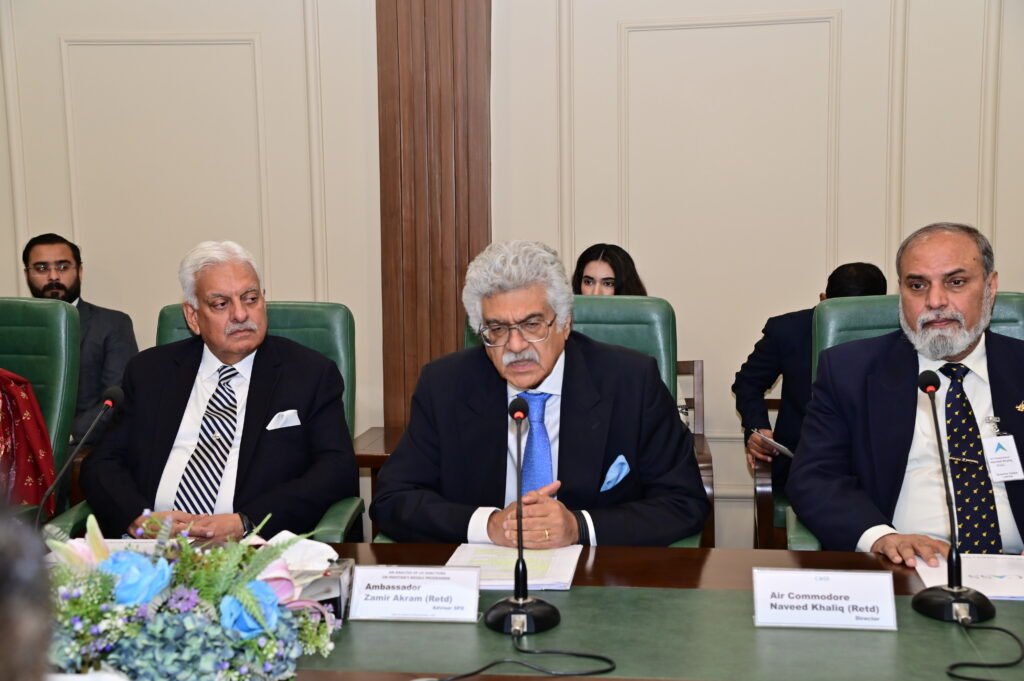
Roundtable Conference
An Analysis of US Sanctions on Pakistan’s Missile Programme
About The Event
In December 2024, the US imposed fresh sanctions on four Pakistani entities allegedly linked to Pakistan’s ballistic missile programme under Executive Order 13382. These sanctions introduced a significant shift in Washington’s justification: for the first time, it was alleged that Pakistan’s missile developments posed a direct threat to the US itself, rather than being framed solely as a regional or non-proliferation concern. Historically, US sanctions against Pakistan’s strategic programmes were premised on issues of regional stability and the prevention of nuclear proliferation. However, the latest measures-imposed at the tail end of the Biden administration reflect a more aggressive posture, one that seeks to curtail Pakistan’s strategic capabilities amidst shifting global alignments and an intensifying US-China rivalry.
The new sanctions raise serious concerns regarding double standards in global non-proliferation efforts. While punitive actions were directed against Pakistan, India simultaneously benefited from relaxed controls on the acquisition of advanced military technologies, further skewing the strategic balance in South Asia. This selective approach has not only undermined the credibility of non-proliferation regimes but has also contributed to regional instability by emboldening India’s unchecked military expansion, including its advancements in missile and space technologies. Moreover, the evolving US narrative linking Pakistan’s missile capabilities with broader threats to American security has created new diplomatic challenges for Islamabad, especially as it seeks to balance its strategic imperatives with the need to maintain constructive relations with Washington.
Against this complex backdrop, the roundtable discussion critically analysed the rationale behind the latest US sanctions, evaluated their implications for Pakistan’s security and strategic autonomy, and explored possible policy responses to effectively navigate the emerging challenges.

Key Takeaways
- Revival of Pakistan’s Missile Programme
Pakistan revived its missile programme due to the development of India’s Prithvi missile and the US restrictions on Pakistan’s purchase of F-16 under the Pressler Amendment.
- US Justification for Sanctions
All previous sanctions on Pakistan’s nuclear programme were based on non-proliferation concerns; however, the latest sanctions claim that Pakistan’s missiles can strike targets well beyond South Asia, including the US.
- US Double Standards and Strategic Targeting of Pakistan
The latest US sanctions on Pakistan’s missile programme reflect a broader strategy of selectively restricting Pakistan’s strategic capabilities while enabling India’s military build-up, thereby undermining strategic stability in South Asia.
- India’s Role in US Policy
The US seeks to weaken Pakistan’s deterrence to allow India to focus exclusively on countering China rather than maintaining a dual-front focus.
- Missile Programme for Deterrence and Stability
Pakistan’s missile programme is essential for countering India’s military expansion, space advancements, and offshore military bases with the aim to maintain credible deterrence and strategic stability in South Asia.
Policy Considerations
- Strengthening Diplomatic Engagement
A coordinated effort by the Pakistani diplomatic corp is essential to reassure the US that Pakistan’s missile programme is defensive and does not pose a threat to the latter.
- Emphasising India’s Military Expansion
Pakistani diplomats must consistently present evidence of India’s strategic build-up at bilateral forums to argue for a balanced US approach in South Asia and advocate against discriminatory sanctions.
- Engaging with International Experts
There is a need to proactively engage with global strategic experts and policymakers to challenge biased narratives on its missile capabilities and highlight inconsistencies in US non-proliferation policies.
- Expanding Defence Cooperation with Allies
Strengthening strategic diplomacy and security partnerships with China, Turkey, Russia, and other allies can help mitigate the impact of Western sanctions on Pakistan’s defence industry.
- Monitoring Shifts in US Policy under Trump
There is a need to closely observe policy shifts under the new US administration and proactively shape Pakistan’s engagement strategy based on evolving US priorities.
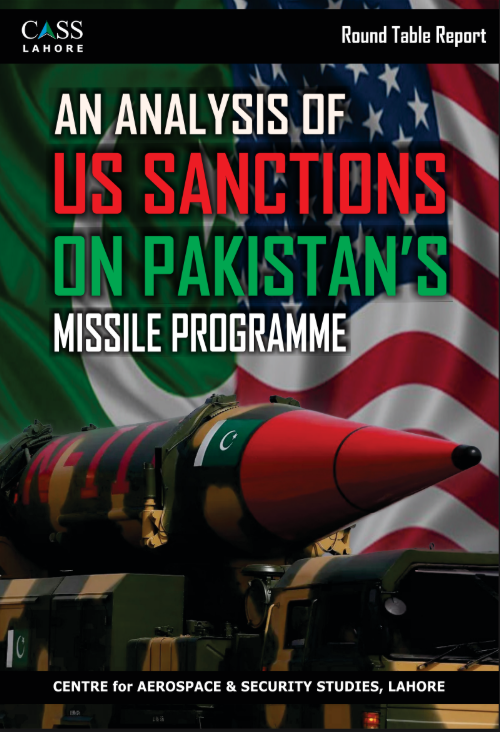
Post Event Report
A comprehensive report capturing expert analyses, strategic insights, key recommendations, media coverage, and event highlights.
Guest Speakers
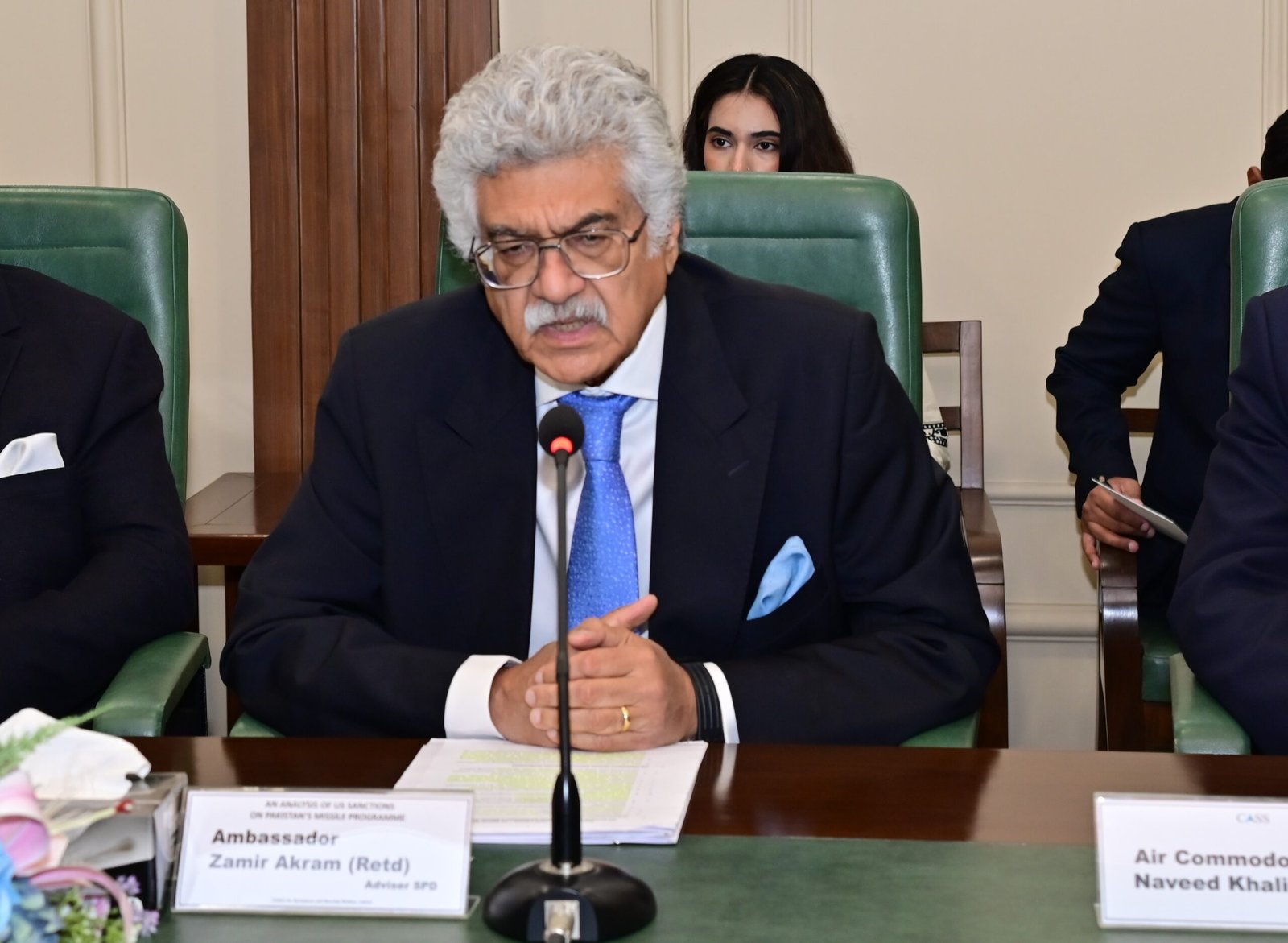
Ambassador Zamir Akram (Retd)
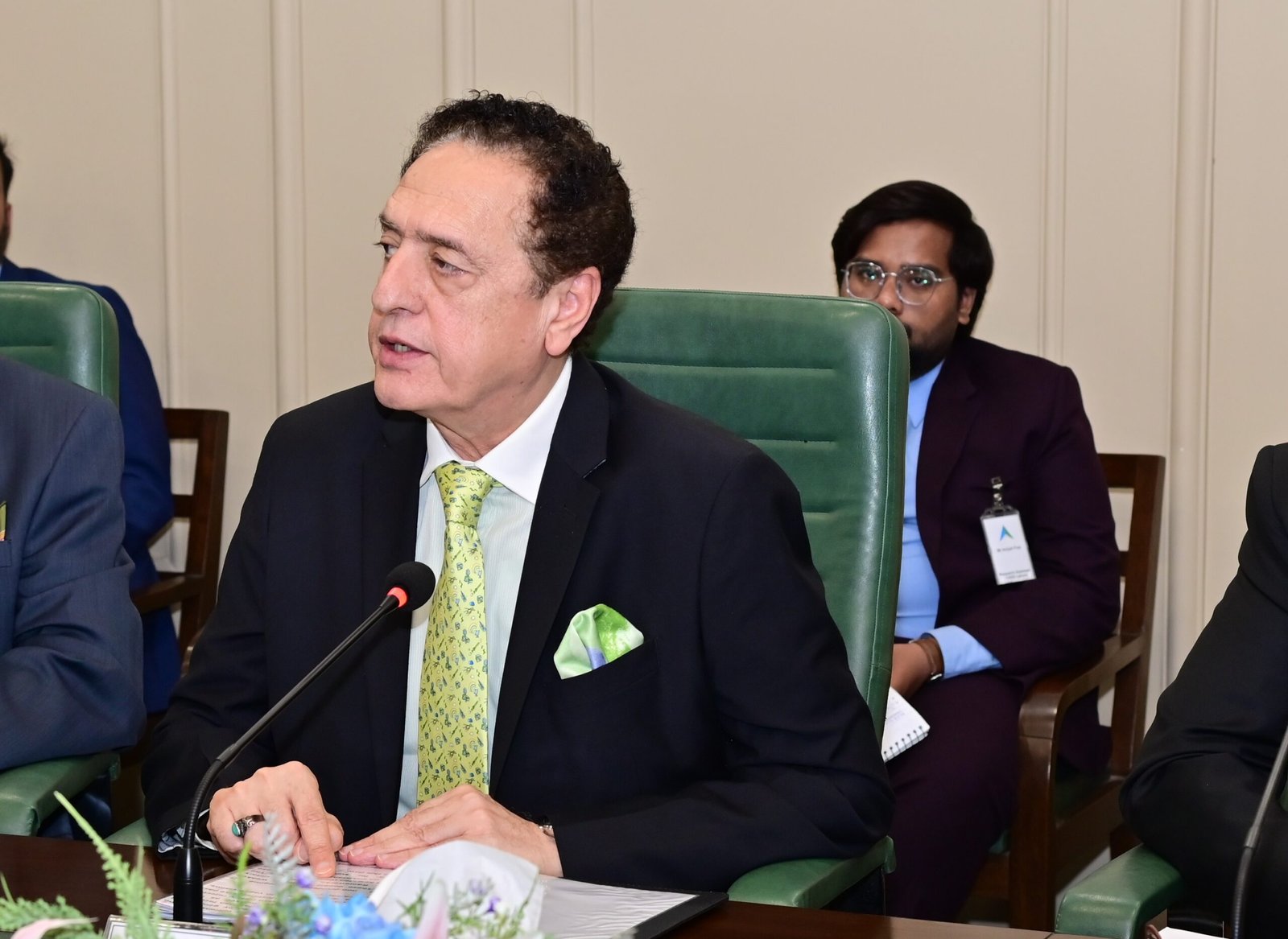
Event Chair
Air Marshal Asim Suleiman (Retd)
President, CASS Lahore
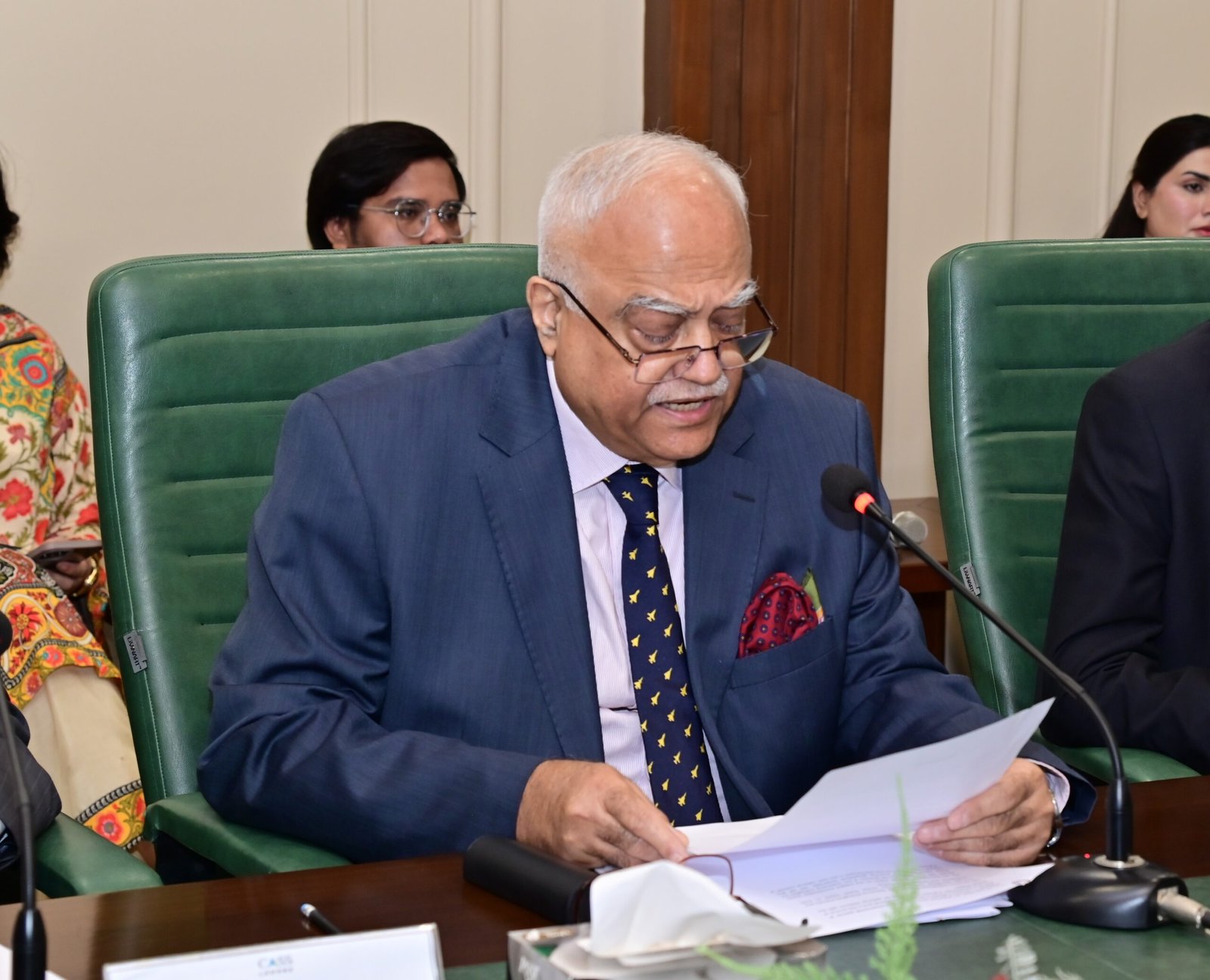
Event Coordinator
Ambassador Haroon Shaukat (Retd)
Director Foreign Affairs, CASS Lahore
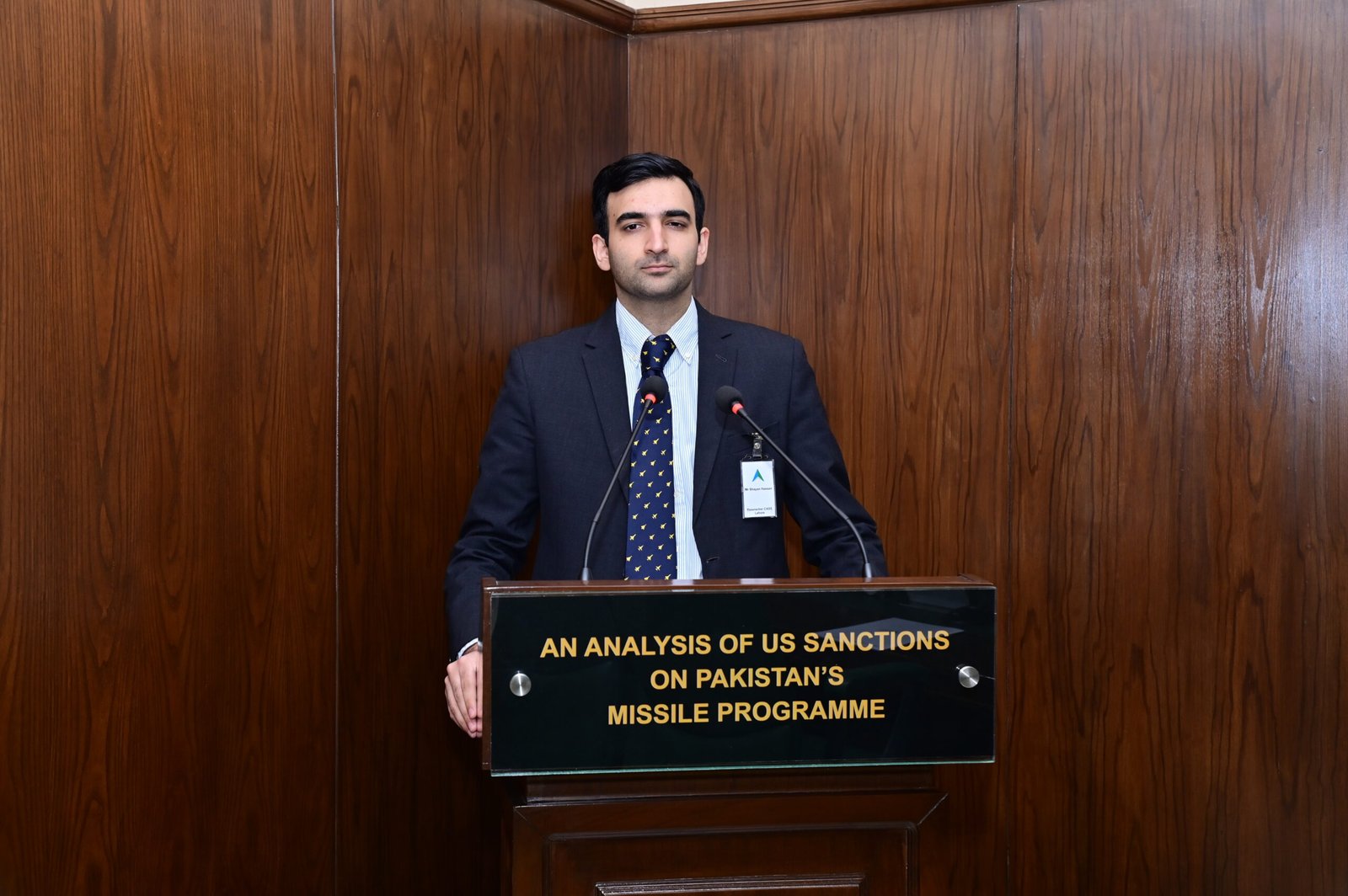
Master of The Ceremony
Shayan Jamy
Researcher, CASS Lahore
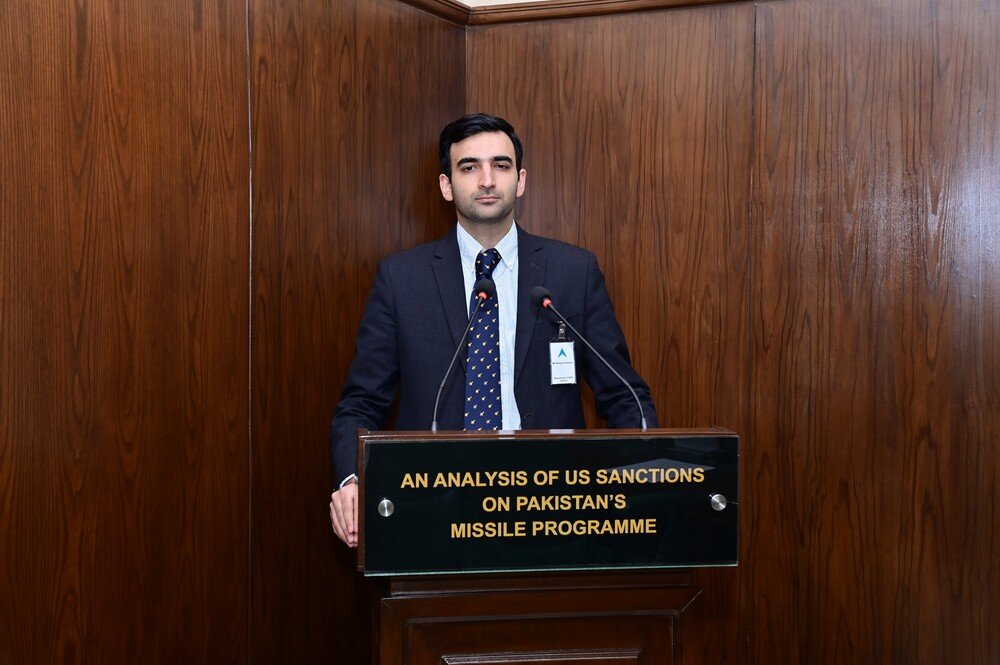
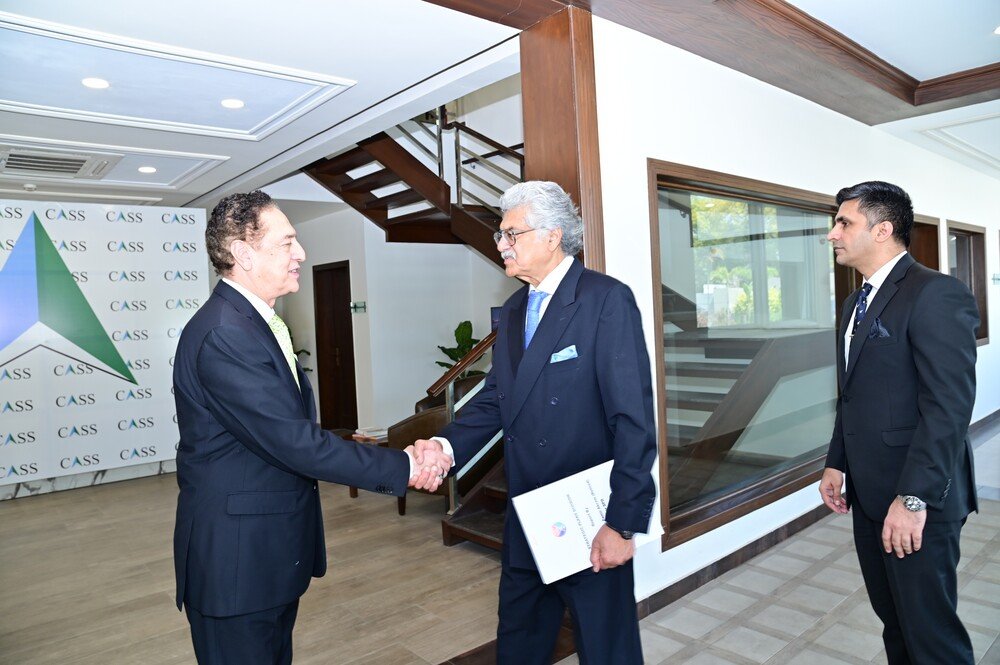
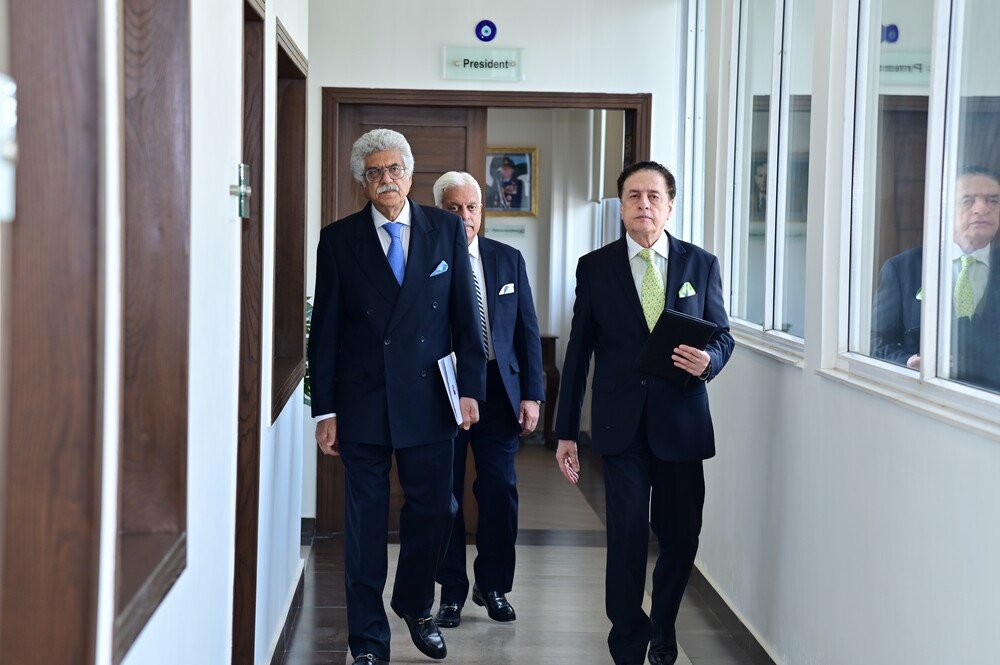
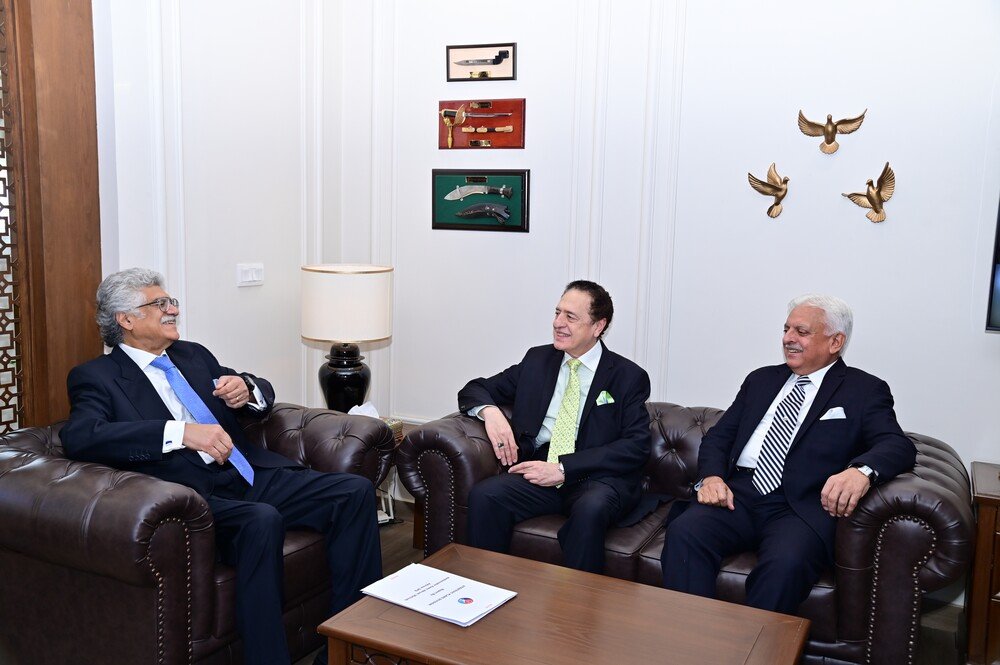
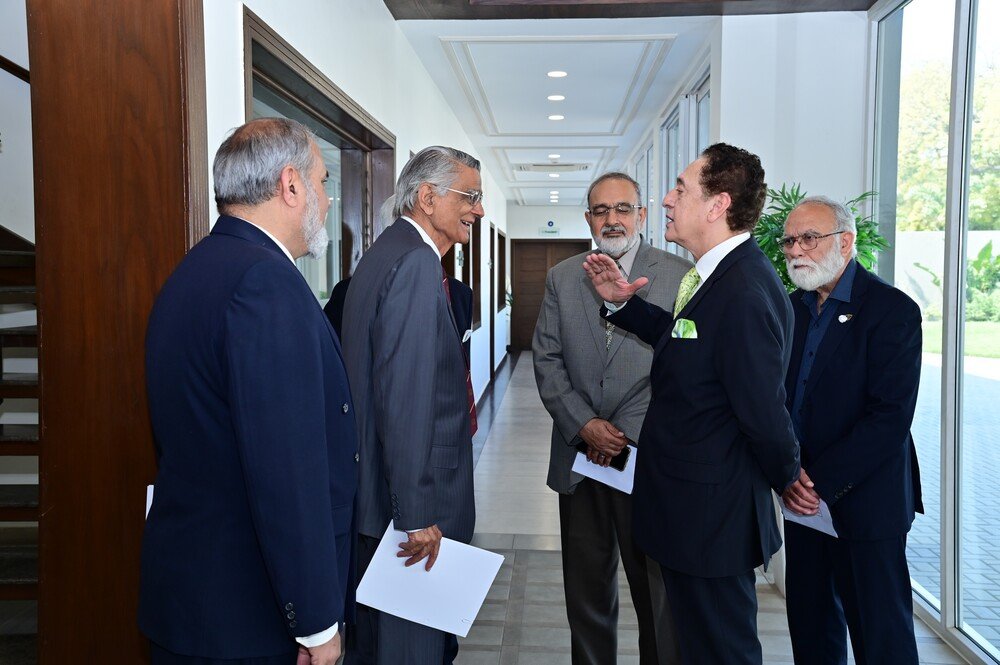
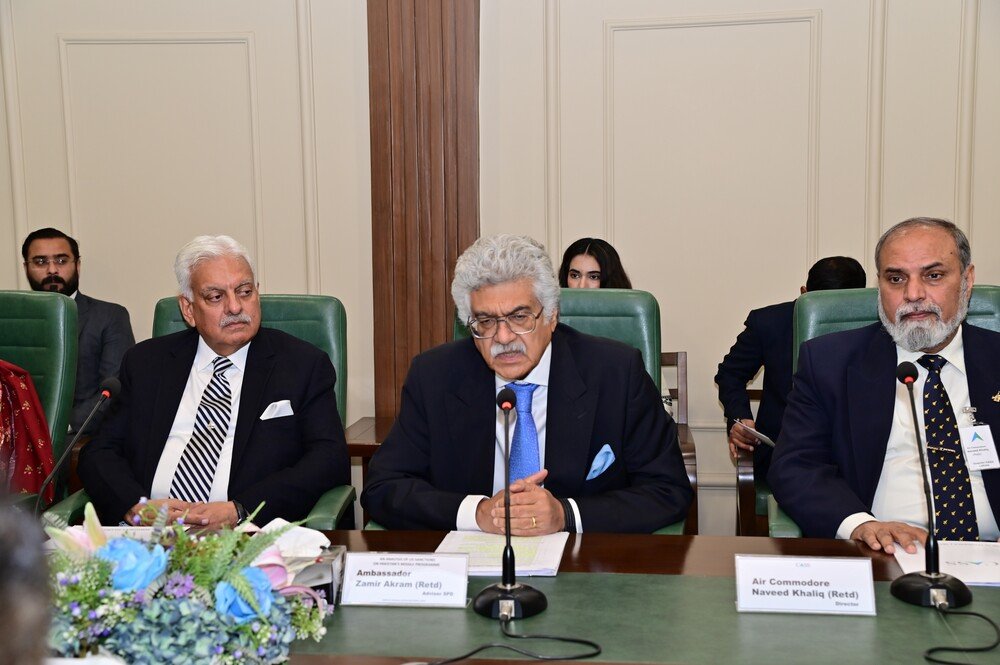
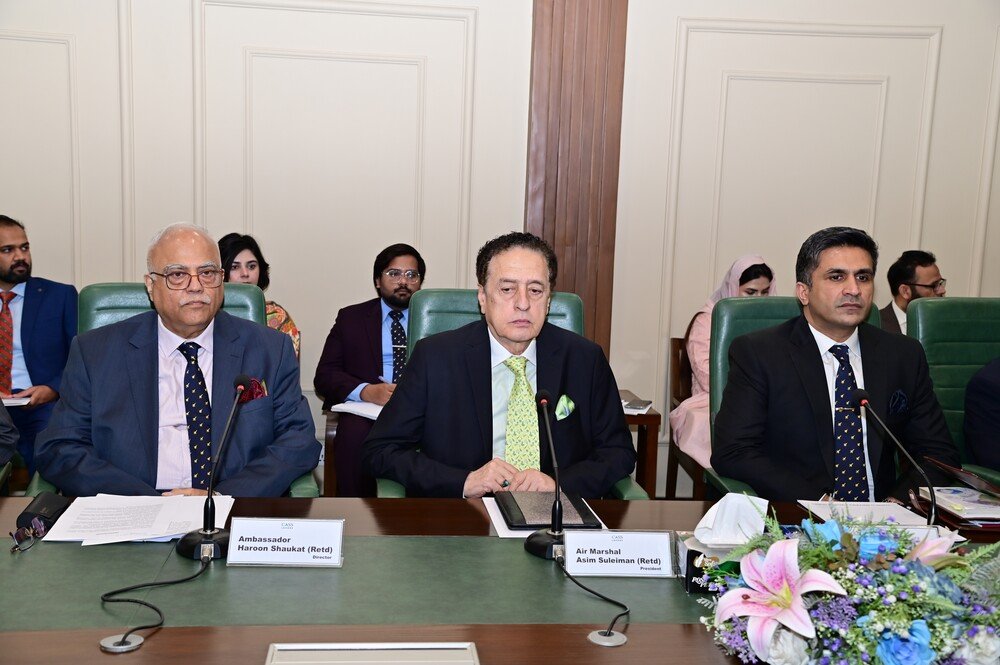
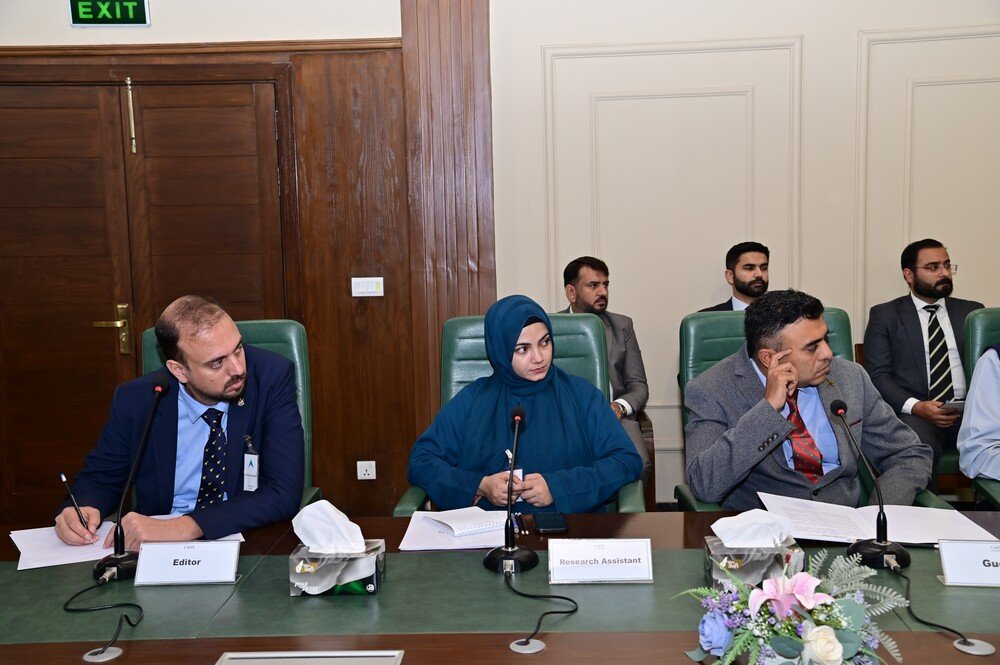
CASS LAhore

The Centre for Aerospace & Security Studies (CASS) was established in July 2021 to inform policymakers and the public about issues related to aerospace and security from an independent, non-partisan and future-centric analytical lens.
CASS Newsletter

@2025 – All Right Reserved with CASS Lahore.
- Home
- About Us
- Research Domains
- Publications
- Events
- Gallery
- Contact Us
@2021 - All Right Reserved. Designed and Developed by PenciDesign



